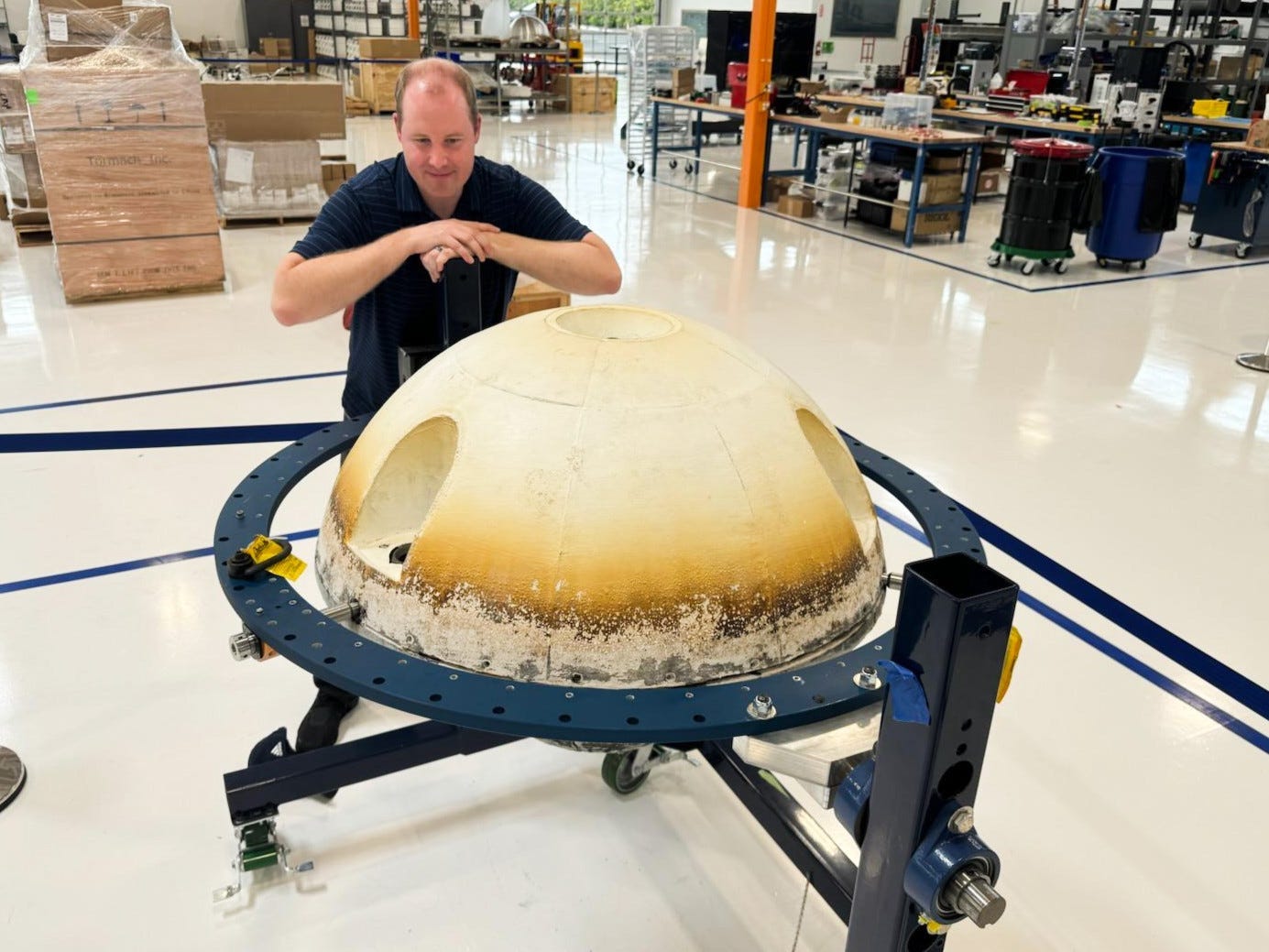
Nothing like seeing a reentry capsule that landed 7 days ago in the Utah desert in person to realize that The US industrial renaissance is here in full swing. Especially when that company was just an idea 2 years ago.
Yesterday, Also Capital (Mike Annunziata) put together a tour of 4 of the leading US startups in space tech and energy. They all happen to be built a stone throw away from each other, in El Segundo, CA.
- Varda Space Industries : Building the first drug manufacturing plant in space
- Radiant: Commercializing portable nuclear micro-reactors
- Northwood: Building a data highway between earth and space
- AnySignal: Modern RF solutions for aerospace and defense
Here are a few key takeaways / low hanging fruits gathered from this trip:
1) Extreme ownership: This renaissance thrives on a culture of extreme ownership. Engineers are responsible of every aspects of their project. Every lead engineer we met embodied this ethos.
2) Hardware rich by default: teams get the product out and iterate fast. They build many prototypes and test them to accelerate their feedback loops. Products are on the shelf, or in some cases, in space already.
3) The new mafia: Ex-Space X employees is clearly the new powerhouse in town, and that town is El Segundo, CA. Looks like the new Paypal mafia. They all share a common insight on how to build hardware businesses and a strong brand label.
4) Shortened road to commercialization: these companies aren’t waiting 7 years to get to revenue. They find their beachhead market early and get the product to their customers. Early revenue gets investors excited, but more importantly, helps founders cross the Series A => B chiasm (businesses getting valued on business and future revenue rather than opportunity and team).
5) Not a new one, but the closest proxy for success is density of key talent. The second closest one is iteration speed. Products don’t have to be perfect from the get-go. There is a short supply of domain experts in each one of these verticals, which makes it easier to understand who is actually serious about getting those products in market.
6) These hardware heavy companies can be incredible businesses thanks to high operating leverage and ROIC, as well as strong baked-in defensibility. The risk is clearly front-loaded, but faster iteration speed and systems engineering can help even non-technical investors understand where the story is going.
7) The technical risk is lower than perceived: these companies build systems and assemble proven technologies — not the kind of binary research plays. Don Valentine had an old quote which said (paraphrasing) that the job of a VC is to invest in the “D” of R&D, not the R.
8) The role of investors at the early stage: help with the legibility of the technology and business to attract top talent and keep the business capitalized. We need to get out of the way from a technical perspective and let the team we back execute on their plan. A nice zinger from Mike: If I know more about the tech and potential pitfalls that the founder, then I’ve backed the wrong team…
Active engagement is still very much the right approach. Our role as advisors is also to help founders take a helicopter view of the market, the opportunity, the risks and opportunities. And act as an accelerant where we can.
Those are some of the early learnings that came out from this tour. I’m excited to dive deeper into the hard tech space and the tooling needed to serve it, especially at the intersection of climate tech. Our next 2 confirmed investments (nuclear, as an angel, and composite manufacturing through Bleu) anchor that orientation.



